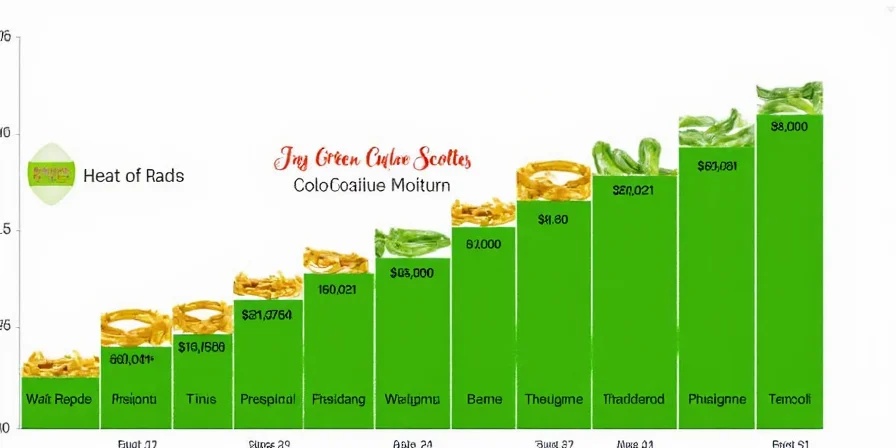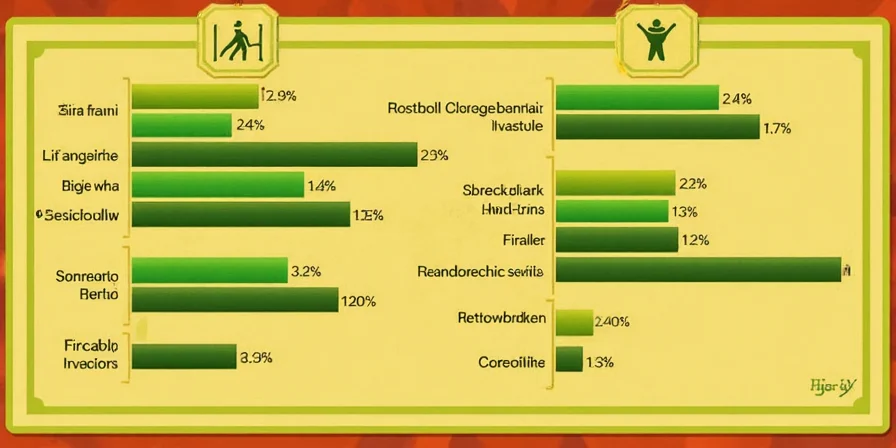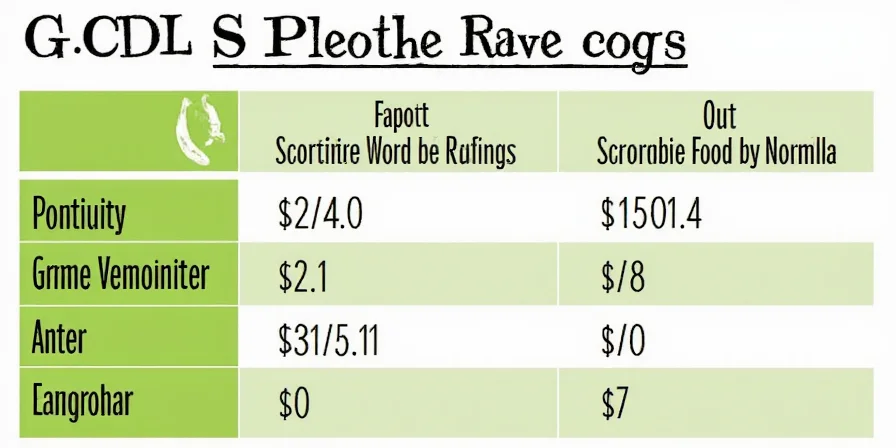The Heat Behind the Green: A Spicy Breakdown of Hatch Green Chile Scoville Ratings
Ever bitten into a roasted Hatch green chile and wondered if your mouth is about to melt off? You're not alone! The famous Hatch green chile comes from the lush Mesilla Valley in New Mexico and has captured hearts (and taste buds) around the world. But just how hot are they, really?
In this post, we’ll dive deep into the Hatch green chile Scoville rating, explore what makes them special, and give you some practical tips on how to handle the heat like a pro.
Table of Contents
- What Is the Scoville Scale Anyway?
- Hatch Green Chile Fun Facts
- Hatch Green Chile Scoville Rating: How Hot Are They?
- 5 Practical Tips for Handling Hatch Chiles Like a Pro
- Spice Meets Flavor: What Pairs Best with Hatch Chiles?
- How to Roast a Hatch Green Chile (Without Setting Your Kitchen on Fire)
- Debunking Myths About Hatch Chiles and Heat
- Final Thoughts: Spice, Smoke, and Satisfaction
What Is the Scoville Scale Anyway?
Before we talk about Hatch green chiles specifically, let’s take a moment to understand the measuring stick for spiciness—the Scoville scale.
Invented by chemist Wilbur Scoville back in 1912, the Scoville scale measures the concentration of capsaicin—the compound responsible for that fiery kick—in peppers. Originally based on human tasters diluting pepper extracts until the heat was no longer detectable, modern methods now use high-performance liquid chromatography for accuracy.
Pro Tip: Capsaicin isn't water-soluble, which means drinking water won’t help if things get too spicy—dairy or sugar do a much better job!
Scoville Heat Units (SHU): Quick Reference
| Pepper Type | Scoville Range (SHU) |
|---|---|
| Bell Pepper | 0 SHU |
| Jalapeño | 2,500 – 8,000 SHU |
| Hatch Green Chile | 1,000 – 8,000 SHU |
| Habanero | 100,000 – 350,000 SHU |
| Ghost Pepper | ~1,000,000 SHU |

Hatch Green Chile Fun Facts
Hatch chiles aren't just another pepper—they’re a cultural icon. Grown exclusively in the Hatch Valley region of New Mexico, these chiles benefit from ideal growing conditions: warm days, cool nights, and mineral-rich soil. This unique terroir gives Hatch chiles their signature flavor profile: smoky, earthy, slightly sweet, and yes, spicy.
- Not Just One Pepper: The term “Hatch green chile” can refer to several varieties including NuMex, Big Jim, and Sandia.
- Seasonality Matters: True Hatch chiles are only harvested once a year—typically between August and September.
- Rainbow of Heat: Depending on the variety and growing conditions, Hatch chiles can range from mild to quite fiery.

Hatch Green Chile Scoville Rating: How Hot Are They?
Let’s cut to the chase: What is the actual Hatch green chile Scoville rating?
Depending on the specific variety and growing conditions, Hatch green chiles typically fall within the range of 1,000 to 8,000 Scoville Heat Units (SHU). That places them roughly in line with jalapeños but with more variability. Some may feel like bell peppers, while others can pack a punch rivaling hotter jalapeños or even mild serranos.
Common Hatch Varieties and Their Heat Levels
| Variety | Heat Level (SHU) | Flavor Notes |
|---|---|---|
| NuMex Twilight | 5,000–7,000 | Fruity, earthy, moderately spicy |
| Big Jim | 1,000–2,000 | Mild, thick flesh, great for stuffing |
| Sandia | 2,500–5,000 | Sweet, crisp, balanced heat |
| Hatch Serrano | 10,000–23,000 | Very spicy, excellent for sauces |
5 Practical Tips for Handling Hatch Chiles Like a Pro
Whether you're roasting, chopping, or freezing Hatch chiles, here are five tips to keep your kitchen safe and your food delicious:
- Wear gloves. Capsaicin doesn’t care if you're wearing fancy chef gloves or gardening ones—it’s going to stick to your skin and cause burning.
- Roast before peeling. Roasting enhances flavor and makes the skins easier to remove. Plus, it smells amazing.
- Freeze for later. Hatch season is short, so freeze extra roasted chiles in labeled bags. They last up to a year!
- Use dairy to cool down. If you overdo the spice, reach for milk, yogurt, or sour cream—not water.
- Taste as you go. Since each chile varies in heat, always sample a small piece before adding large amounts to your dish.

Spice Meets Flavor: What Pairs Best with Hatch Chiles?
Part of what makes Hatch green chiles so beloved is their versatility. Here are some flavor pairings that enhance both the spice and sweetness:
- Cheese: Monterey Jack, cheddar, and goat cheese all balance the heat beautifully.
- Pork: Whether it's carnitas, pulled pork, or a simple roast, Hatch chiles add depth without overpowering the meat.
- Tomatoes: Add roasted Hatch chiles to salsa verde or tomato soup for a smoky kick.
- Eggs: From huevos rancheros to breakfast burritos, Hatch chiles bring fire and flair to morning meals.
How to Roast a Hatch Green Chile (Without Setting Your Kitchen on Fire)
Roasting Hatch chiles brings out their natural oils and intensifies their flavor. Follow this easy method:
- Preheat your broiler or set your oven to 400°F (200°C).
- Place whole chiles on a baking sheet or wire rack under the broiler.
- Rotate occasionally until the skin is blistered and blackened (about 5–10 minutes per side).
- Wrap in foil and let steam for 10 minutes to loosen the skin.
- Peel gently and remove seeds if desired (for less heat).
Alternatively, use a gas stove flame or outdoor grill for faster charring—just keep a close eye on them!

Debunking Myths About Hatch Chiles and Heat
There are plenty of myths floating around about chiles and heat levels. Let’s set the record straight:
- Myth: Bigger chiles are hotter.
Reality: Size doesn’t determine heat. Smaller chiles often pack more punch due to higher surface-area-to-volume ratio. - Myth: Removing seeds makes them non-spicy.
Reality: Most capsaicin lives in the inner membranes. Seeds don’t produce heat, but they carry it. - Myth: Red chiles are always hotter than green ones.
Reality: Color reflects ripeness, not necessarily heat. A red Hatch chile might be sweeter than its green version.
Final Thoughts: Spice, Smoke, and Satisfaction
Whether you're a seasoned chilihead or a cautious newcomer, Hatch green chiles offer something for everyone. Their Scoville rating ranges widely, making them perfect for customization in any dish. Understanding their heat levels and handling them correctly can elevate your cooking—and maybe even impress your friends at the next taco night.
So next time you grab a bag of freshly roasted Hatch chiles, remember: the key is balance. Let the spice enhance the flavor, not dominate it. And don’t forget the sour cream… just in case.











 浙公网安备
33010002000092号
浙公网安备
33010002000092号 浙B2-20120091-4
浙B2-20120091-4